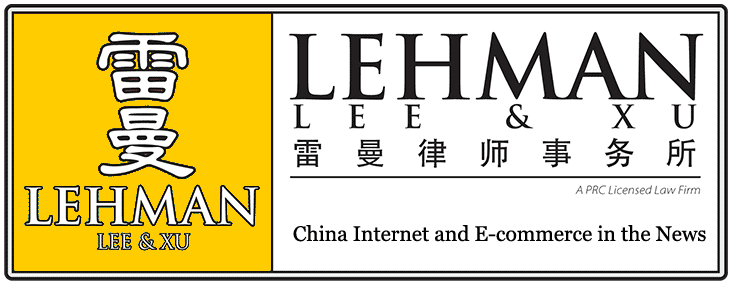Along with holiday spirit, predictions, promises and potential are in the air, as more and more people do their holiday shopping online. Global e-commerce continues to thrive and even exceed expectations, with China thus far living up to its top rankings in terms of country potential as listed in A.T. Kearney's 2012 E-Commerce Index. The index rates 30 countries in relation to emerging e-commerce potential.
China appears on track given its third quarter numbers. According to an iResearch Report, revenues from China's Internet economy hit 109.19 billion yuan in Q3 of 2012, up 13.3 percent quarter-on-quarter and 64.4 percent year-on-year, with mobile phone-based e-commerce continuing to increase its market share.
The Kearney index referenced 18 indicators of e-commerce readiness. These factors include, among others, the degree of market saturation, online infrastructure establishment; existence of digital laws and regulations, retail developments, business efficiency, and degree of urbanization.
In terms of market appeal, China is highly attractive with its rising standard of living and growing middle class, evidenced by the fact that China is now the world's largest exporter, second largest importer and overall second largest economy. Coming in behind China in the Index were Brazil, Russia, Chile, Mexico, United Arab Emirates, Malaysia, Uruguay, Turkey and Oman.
The Centre for Retail Research, a UK-based retail research and consulting firm, predicted earlier this year that Poland would register the fastest growth in the European e-commerce market with a 24 percent hike in e-retail compared to a European average of 16.1 percent. The combination of rapid general economic growth coupled with a significant increase in the number of citizens online are integral factors to allow e-commerce to grow, the report said.
The Kearney E-commerce Index is supported by limited additional research conducted in developing countries for various indicators influencing the e-commerce market, including: the number of e-shoppers, the total number of payment cards used in the country, the number of broadband subscribers in a particular market, and the existence of a legal framework which can enforce online contracts. Put another way, when a country has the requisite infrastructure to support e-commerce coupled with a critical number of online users who trust the system, then the e-commerce rocket is ready for takeoff. In China's case, the large volume of mobile phone users makes the country's potential for mobile e-commerce especially promising.
While the future of e-commerce in China looks bright, its development is still in an early stage.
Chris Anderson, editor of WIRED, commented on past predictions of e-commerce growth in the US that "when you look at the predictions made during the peak of the boom in the 1990s, about e-commerce, or internet traffic, or broadband adoption, or internet advertising, they were all right - they were just wrong in time." This should serve as a warning that forecasts for e-commerce market growth in China should not exceed the capacity of the country's current infrastructure.
At present, China e-commerce market faces a number of challenges. The e-commerce market at present is dominated by a relatively few players, including the Alibaba Group's Taobao.com and Tmall.com, 360Buy, Dangdang, Amazon and Tencent. The range of products sold online generally focuses on a narrow range of goods including books, technology items, travel, sports apparel, and mother/baby products. Many Chinese citizens are still not online and or do not have a credit card.
Furthermore, there is a significant disparity in telecommunications infrastructure between the largest cities and rural areas. There have also been logistics problems in filling online orders as well as a strong marketing response to online competition by traditional "brick & mortar" businesses. While a basic legal framework for e-commerce is in place, it has yet to be fully tested and evaluated especially in relation to consumer education, fraud prevention and prosecution. These and other factors are some of the issues that must be addressed before China fully realizes its e-commerce potential.
Eugene Clark is Distinguished Professor, College of Comparative Law, China University of Political Science and Law, Professor, Charlotte School of Law, Adjunct Professor, Griffith University and Emeritus Professor, University of Canberra. With a career in both the US and Australia, Clark is a former University Pro-Vice Chancellor, Law School Dean, CEO and legal practitioner. Clark is the co-author of, Internet and E-commerce Law, Business and Policy (Thomson 2011) as well as many other books and articles on e-commerce, commercial law and legal education. For a number of years he wrote a weekly column on Technology and Law for the Canberra Times.
Source: http://www.china.org.cn/opinion/2012-12/21/content_27472456.htm
|

